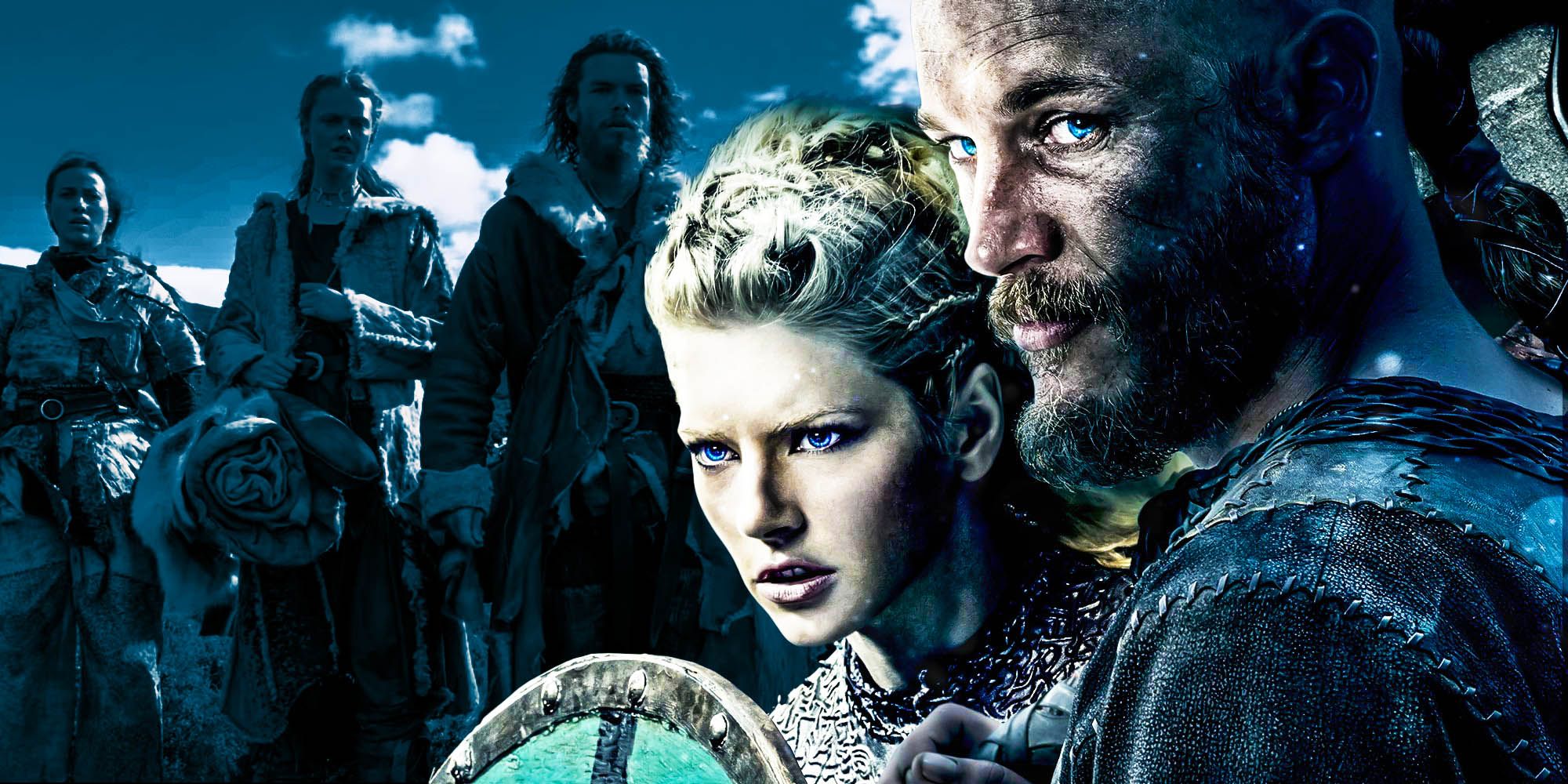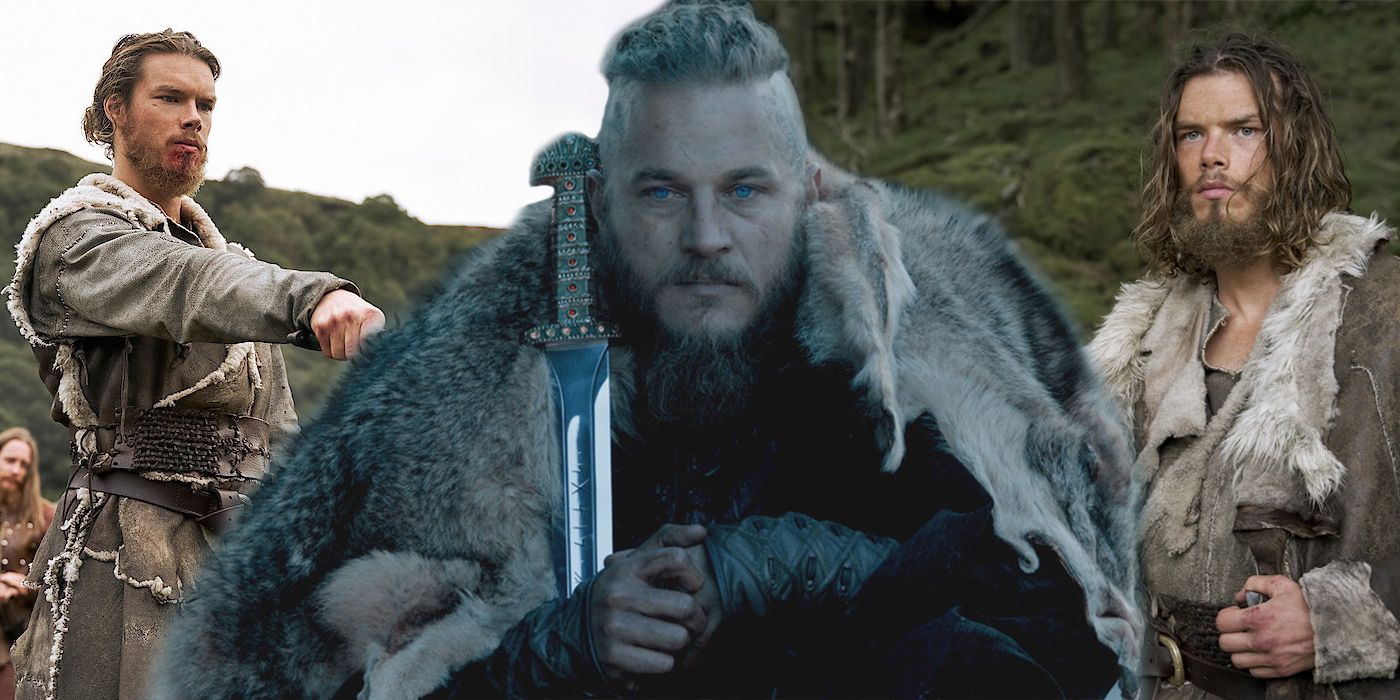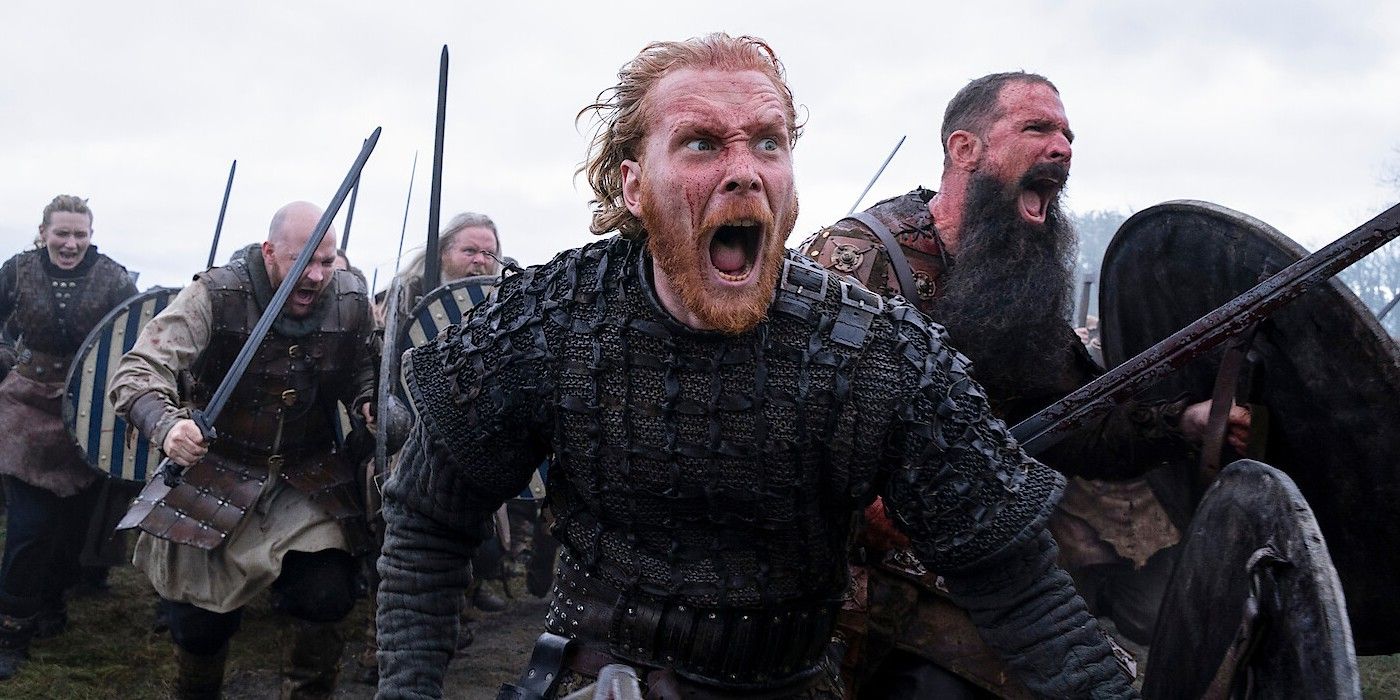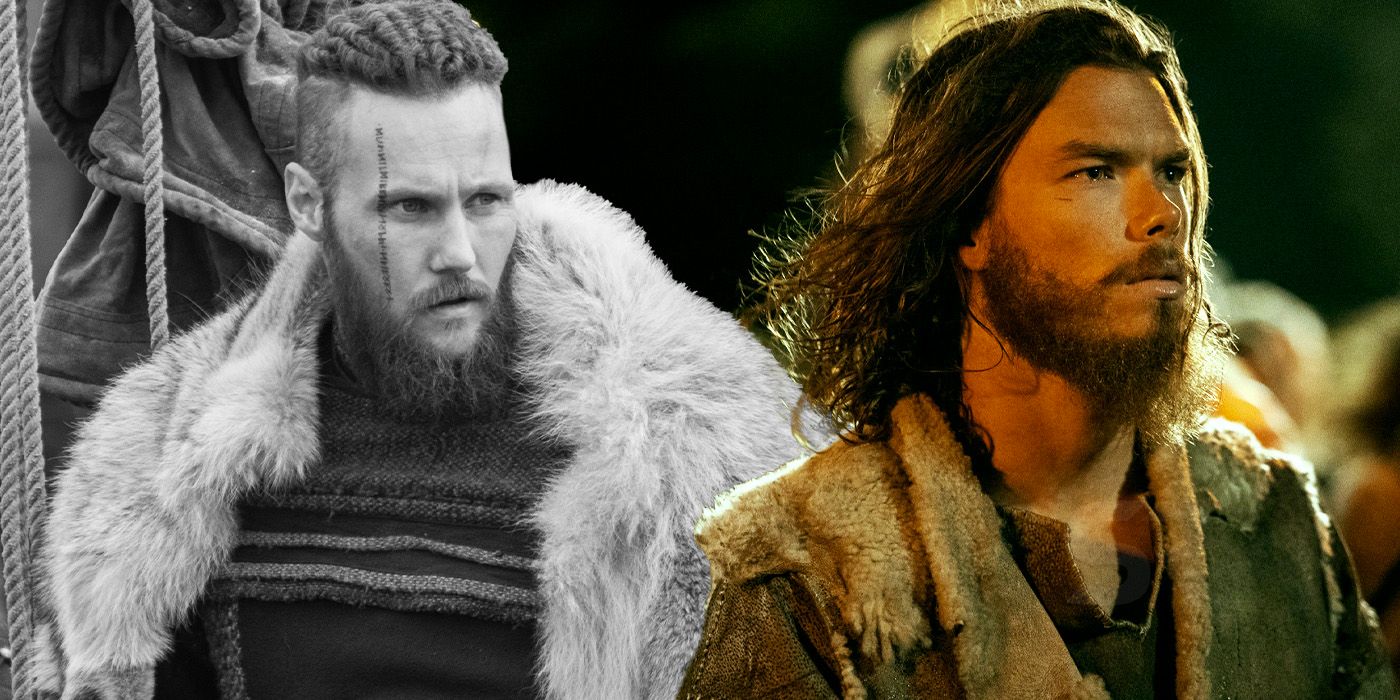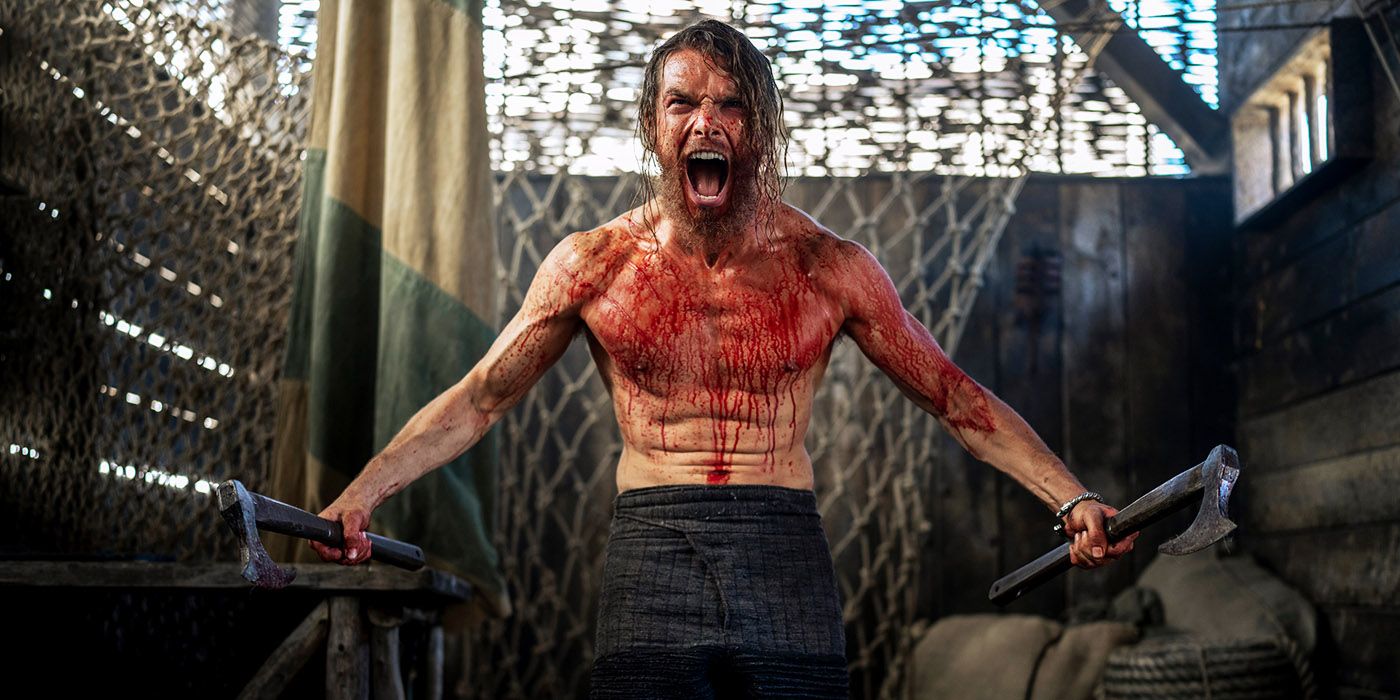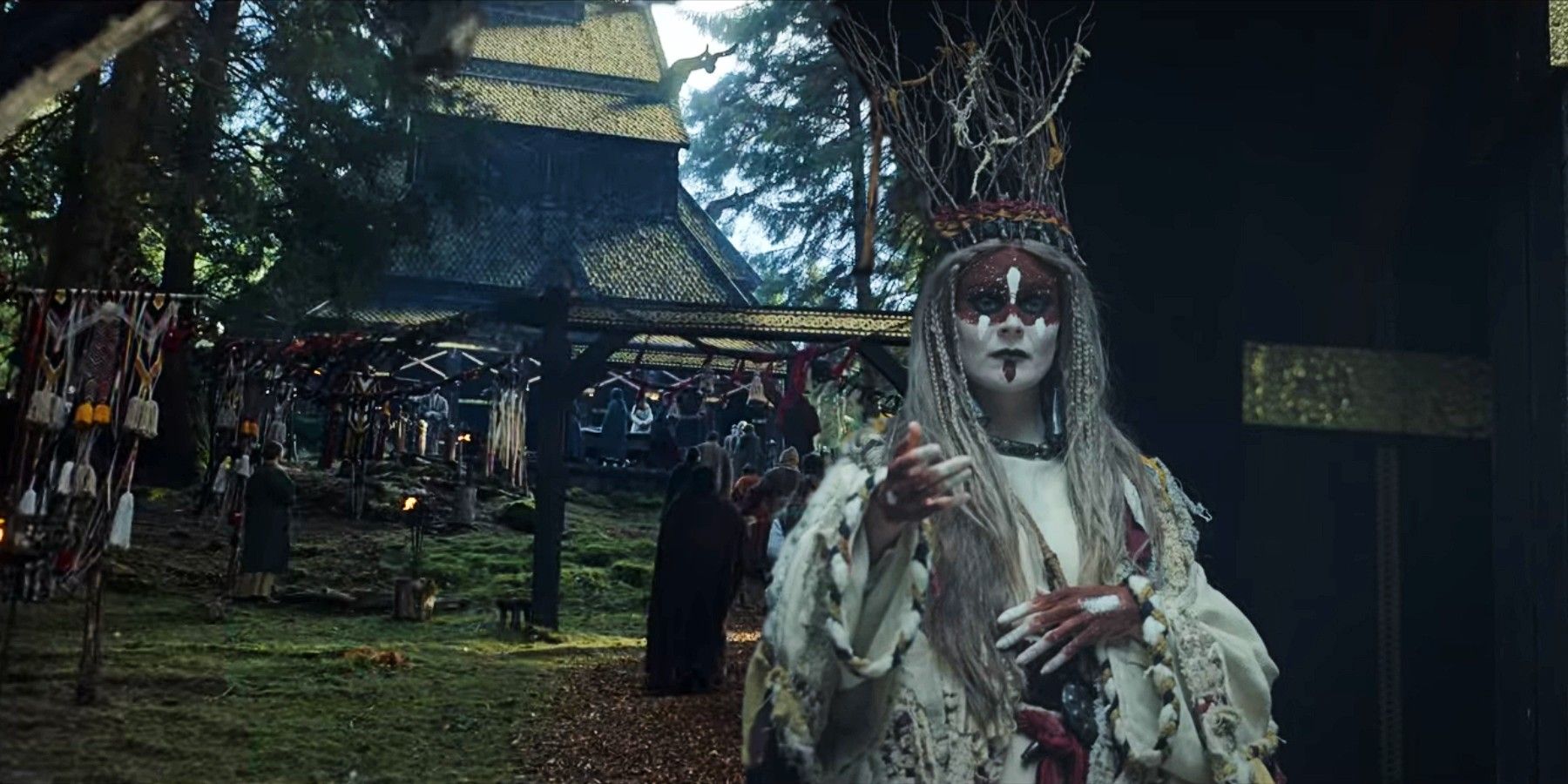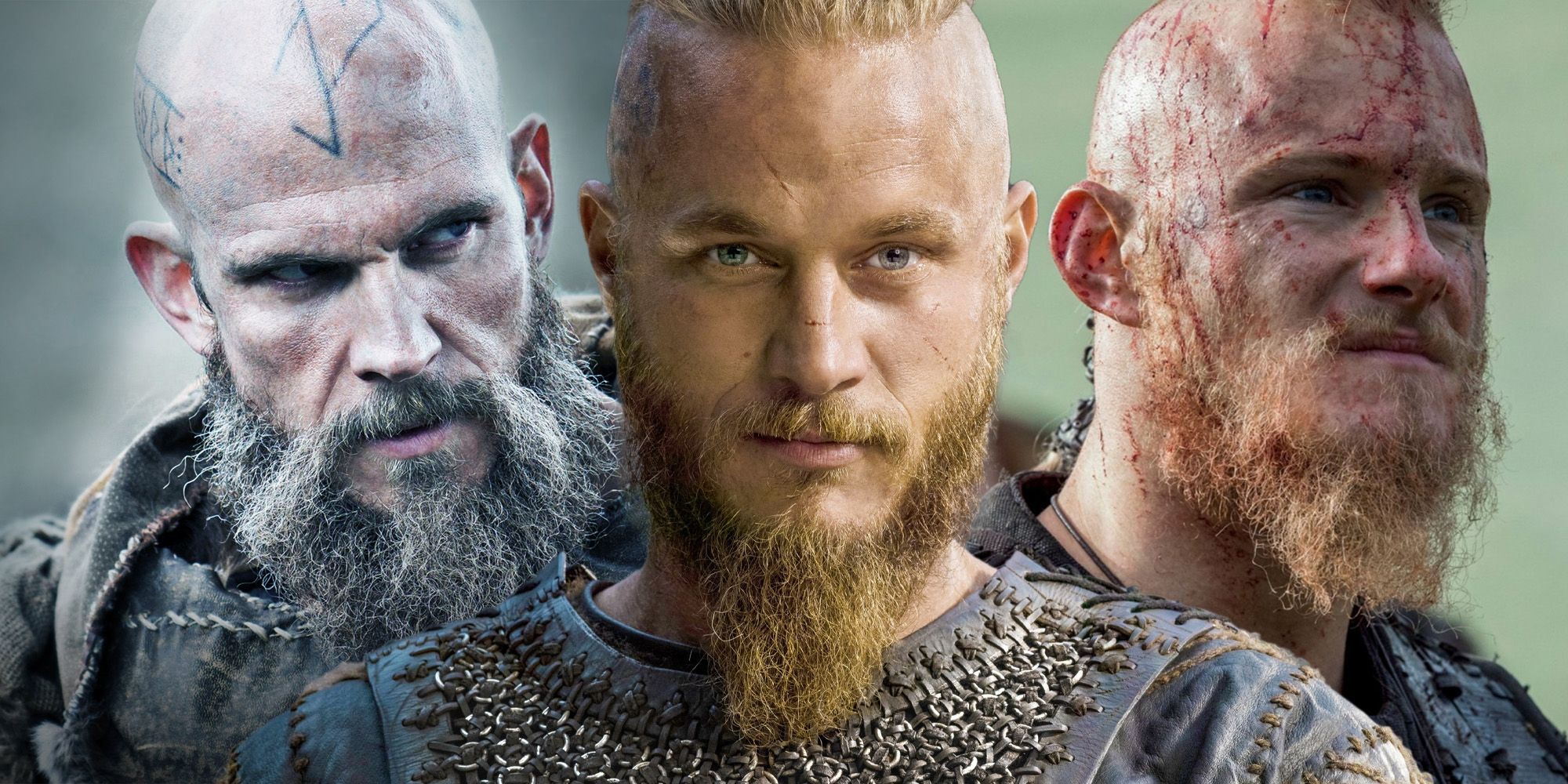Netflix’s Vikings: Valhalla makes use of the success of the popular History Channel series Vikings, but does it live up to the reputation of its predecessor? The spinoff show features landmarks and story elements from the original to be navigated by an all-new cast of characters. Valhalla carries the spirit of the original series into a new generation, but does the show forge a path all its own or simply ride on the coattails of a story long since ended?
Valhalla is on the same timeline as Vikings, now focusing on a new generation of Vikings and Saxons and a new war of vengeance that grips their nations. After an order from King Aethelred to eradicate all Vikings from Saxon lands, King Canute and Prince Harald Sigurdsson form an army of Danes to seek revenge for their slaughtered brethren. Leif Eriksson, Greenlander and son of famous berserker Erik the Red, is roped into the quarrel by circumstance, reluctantly leading the Viking army into the annals of history.
Vikings and Valhalla share as many similarities as they do differences, with each story offering a unique insight into the lives of Vikings. There is plenty of overlap between the two installments, with numerous character references and connections made throughout Valhalla. The format, setting, style, and tone of both series are similar, but there are noticeable differences in Valhalla’s approach to the story that set it apart from the original - for better or worse.
How Valhalla Is Different To Vikings
Much has changed in the 100 years since the death of Ragnar Lothbrok. Having been briefly brought into the fold of Europe, the Vikings have learned a degree of diplomacy that was scarce in the original. They settled in England and established the Danelaw, governing themselves with a set of laws separate from those of Mercia and the rest of England. Perhaps the most significant difference between Vikings and Valhalla (from a production standpoint, at least) is the involvement of creator Michael Hirst. Hirst was the showrunner of Vikings, penning nearly every episode in the original series and even casting both of his daughters in significant roles throughout its run. Hirst remains involved as an executive producer on Valhalla, but he has so far only written two episodes for the series, with the bulk of the season being written by new showrunner Jeb Stuart. The quality of the writing has not noticeably declined, nor indeed improved, but the overall cohesion of the franchise suffers slightly from Hirst's somewhat limited involvement.
Is Valhalla's Story Better Than Vikings'?
Neither Vikings nor Valhalla is quite historically accurate, but Vikings feels to have a better understanding of its characters and how to best make use of them. There is an element of emotionality exemplified in Vikings that seems to be missing from Valhalla. Although the battles and vendettas in Valhalla are every bit as personal as in the original, the framing and execution of them leave something to be desired (in comparison to Vikings, at least). There is a tangible degree of rage that is carried throughout Vikings, from Ragnar to Ivar and many places in between, and while the themes of vengeance and war are ever-present in both series, Valhalla fails to deliver in quite the same way as its predecessor.
Are Valhalla's Characters Better Than Vikings'?
Valhalla includes some of the most famous Vikings in history, but the way it has chosen to utilize them leaves something to be desired. Valhalla's Leif Eriksson is almost unrecognizable from history, and he carries on throughout the series without a real sense of purpose or any memorable traits. King Canute, one of the most historically significant characters the franchise has seen, is rather underutilized, disappearing from the series halfway in to fight a war in Denmark offscreen. There are some interesting tertiary characters, namely Godwin and Queen Emma of Normandy, but so far Valhalla lacks a great unifying force such as Ragnar Lothbrok, a character so inspirational and so well-defined that even the characters in Valhalla can’t help but talk about him some 100 years after his death.
Does Valhalla Have Better Action Than Vikings?
There is certainly no shortage of action in Vikings: Valhalla, with a major battle taking place roughly every other episode, but there is a certain degree of intensity that feels to be missing in many instances. Ragnar’s battles (as well as his sons’, for the most part) were all deeply personal and emotional, pushing him and his warriors to fight with a ferocity and tenacity that was unmatched the world over. The warriors in Valhalla feel to be almost of a different breed from those in Ragnar’s time, with a surprising number of them even appearing cowardly at times. Leif Eriksson is protected by a visible layer of plot armor, defeating scores of enemies by almost clumsily battling them one by one. Harald Sigurdsson and Freydis Eriksdotter are Vikings: Valhalla’s redeeming characters, each embodying a fierceness that would have otherwise gone unseen.
How Valhalla's Use Of Norse Myth Compares To Vikings
Mythology has always been at the forefront of the Vikings franchise, a trend that Valhalla continues, but the way that theology is approached has shifted slightly. The conflict between pagans and Christians has found its way into Norway, splitting the Viking forces into separate ideological factions. The show still features elements of Norse mythology and religious traditions, but it is clear that the stage is being set for a shift in those practices as Europe slowly unites under the banner of Christ.
Why Vikings Is Better Than Valhalla
Both shows are well-made and offer value to the overall narrative of the franchise, but Valhalla inevitably falls short of its predecessor’s legacy. Ragnar Lothbrok and his sons were well-developed and compelling characters supported by a cast of unique and memorable characters, each enriching and improving the story in their own way. Season 2 of Vikings: Valhalla promises to be more exciting than the first, so it is still too early to tell how the two shows will compare when all is said and done. But as things stand currently, the character development and overall intensity of Vikings make it a more interesting story.

